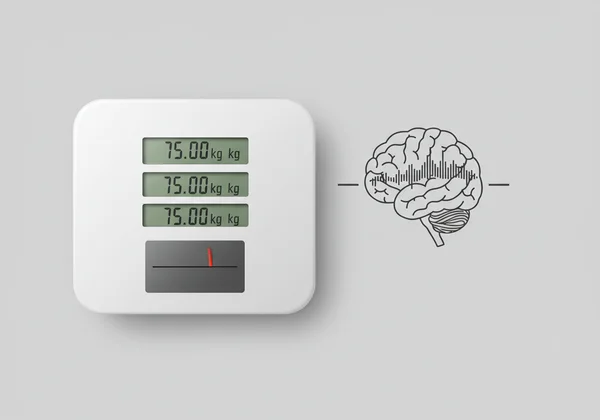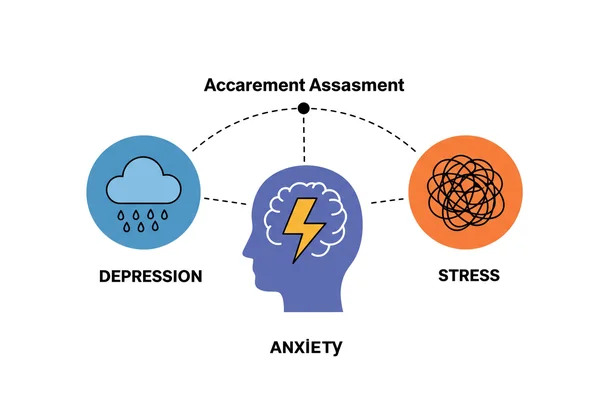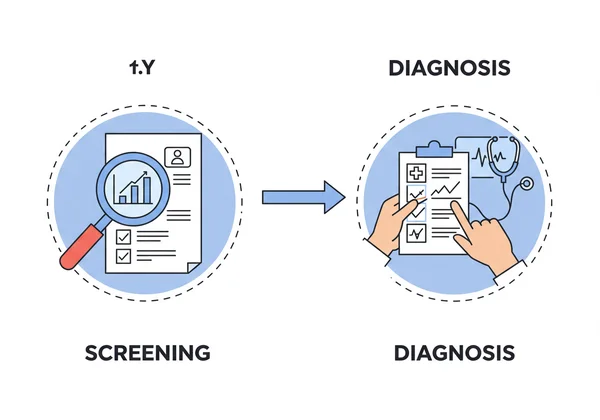DASS-21 量表的信度:這項評估是否準確且有效?
August 26, 2025 | By Evelyn Reed
當您轉向某個工具來深入了解自己的心理健康時,信任至關重要。像憂鬱、焦慮和壓力程度量表 (DASS-21) 這樣的心理評估被廣泛用於自我了解、學術研究,甚至作為臨床環境中的初步檢查。但這引出了一個關鍵問題:我們如何知道它有效?對於任何依賴其見解的人來說,剖析 DASS-21 的信度 是至關重要的。 DASS-21 量表的可靠性如何?
本文將深入探討這項評估的科學基礎。我們將探討是什麼讓它成為衡量憂鬱、焦慮和壓力等不同情緒狀態的可靠工具。透過了解其信度和效度,您可以對收到的結果感到自信。如果您準備好獲得一份清晰、有科學依據的情緒健康快照,您可以在我們的平台上 進行 DASS-21 評估。

了解 DASS-21 信度:測量的一致性
在心理學領域,信度指的是測量的一致性。想像一下一個可靠的體重計:如果您連續踩上去三次,它每次都應該顯示相同的體重。一個可靠的心理測驗也是如此。它應該在一致的條件下產生一致的結果,確保您獲得的分數是您狀態的穩定反映,而不是隨機的波動。
對於此類工具而言,一致性至關重要。這意味著您的分數真實反映了您過去一週的感受,為自我反思或與專業人士討論提供了一個穩定的參考依據。
信度對心理量表意味著什麼?
當我們談論 心理測驗 中的信度時,我們是在詢問測驗是否可靠且一致。如果一個人在兩天內進行相同的測驗(期間沒有發生任何重大生活事件),他們的得分應該非常相似。這種一致性確保了測驗準確地衡量一個人的狀態,而不是受到偶然或錯誤的影響。這份問卷經過嚴格測試,以確保其符合嚴格的一致性標準。
內部一致性:DASS-21 項目之間的關聯(Cronbach's Alpha)
信度的關鍵衡量標準之一是內部一致性。這檢查單一量表內的不同問題(例如憂鬱的七個問題)是否都測量同一潛在構念。心理學家通常使用一種稱為 Cronbach's Alpha 的統計量來衡量這一點。高的 Cronbach's Alpha 值(通常高於 0.70)表示項目之間高度相關,並且可靠地測量同一潛在構念。
大量研究表明,憂鬱、焦慮和壓力量表具有出色的內部一致性,其 Cronbach's Alpha 值通常遠高於 0.80。這意味著這些問題協同作用,為每種情緒狀態提供連貫且可靠的呈現。您可以透過 免費的 DASS-21 評估 了解這些問題如何協同作用。
重測信度:您的 DASS-21 分數是否隨時間保持一致?
另一個重要方面是 重測信度,它評估測驗隨時間的穩定性。如果一個人進行評估,然後在一兩週後再次進行,他們的分數應該相似,前提是他們的情緒狀態沒有真正改變。研究表明,這個量表具有良好的重測信度。這證實它提供了一個穩定的測量,使其成為追蹤您情緒健康的值得信賴的工具。

探索 DASS-21 效度:它是否測量了它聲稱的內容?
信度關乎一致性,而效度則關乎準確性。一個有效的測驗測量的是其預期測量之事物。例如,一個旨在測量焦慮的量表應該測量焦慮,而不是其他東西,如憤怒或悲傷。這個量表是專門開發的,不僅可以測量情緒困擾,還可以區分憂鬱、焦慮和壓力的獨特症狀。
確保效度是使這個工具不僅僅是一份問卷的原因;它是一個經過科學精煉的儀器,用於理解細微的情緒體驗。對於那些尋求準確自我評估的人來說,線上 DASS-21 工具 是一個很好的起點。
定義效度:心理測驗中不僅僅是準確性
效度是任何可信心理測驗的基石。它確認了分數及其解釋是有意義的。一個測驗可以是可靠的(一致的),但卻不是有效的(準確的)。例如,一個壞掉的溫度計可能一直讀數高出 5 度——它在錯誤方面是可靠的,但它不是有效的。這項評估經過了廣泛的驗證,以確保它準確地測量其目標的特定構念。
構念效度:DASS-21 如何有效測量憂鬱、焦慮和壓力
構念效度 可以說是這項評估最關鍵的效度類型。它檢視測驗如何有效測量其旨在測量的理論構念——憂鬱、焦慮和壓力。這份問卷在這方面表現出色。它基於一個模型開發,該模型仔細區分了每種情況的核心症狀。例如,它將絕望感識別為憂鬱的一個關鍵特徵,將生理喚起視為焦慮的核心,並將持續的緊張感視為壓力的特徵。研究一致證實,這個量表成功地捕捉了這些獨特但相關的情緒狀態。

實際應用:DASS-21 的預測效度和區辨效度
除了理論之外,該量表在實踐中也展現了其效度。它具有良好的 預測效度,這意味著其分數通常可以與未來的高困擾相關的結果或行為相關聯。此外,它還顯示出強大的 區辨效度,能夠有效區分憂鬱和焦慮,這兩種情緒常有重疊的症狀。這種區分這些狀態的能力是其最大的優勢之一,比更一般的「困擾」篩查工具提供更清晰的見解。這使得 DASS-21 自我評估 成為個人洞察的強大工具。
DASS-21 心理測量學的科學基礎
對這項評估的信任並非隨意;它奠基於數十年心理學研究和統計分析。 DASS-21 心理測量學——測量心理特質與歷程的科學——為其在全球範圍內的使用提供了堅實的基礎。正是這種科學支持,讓像我們這樣的平台能夠提供可靠的心理健康篩查工具。
支持 DASS-21 的關鍵研究與驗證研究
自 Lovibonds 於 1995 年開發以來,這個量表已成為全球數百項研究的主題。它已被翻譯成數十種語言,並在從學生到臨床患者再到一般人群等不同文化背景下進行了驗證。這大量的證據一致支持其穩健的心理測量學特性。這項廣泛的研究是它成為值得信賴的 心理健康篩查 和個人反思工具的原因。
DASS-21 使用的限制與倫理考量
建立信任也意味著對工具的限制保持透明。重要的是要記住,這項評估是一個篩查工具,而非診斷工具。它提供了您過去一週情緒症狀的寶貴快照,但無法告訴您是否患有臨床疾病。正式診斷只能由合格的醫療專業人員在全面評估後做出。
您的結果是自我意識的起點,或與醫生、治療師或諮詢師對話的基礎。分數可以幫助您表達自己的感受,但不應取代專業醫療建議。如果您擔心自己的分數,請尋求專業支持。進行 保密的 DASS-21 評估 是了解您情緒健康的一個積極主動的第一步。

建立信任:您的可靠且有效的 DASS-21 評估
這項評估是衡量憂鬱、焦慮和壓力的科學可靠工具。其強大的信度確保您的結果一致且穩定,而其經證實的效度則確認它準確測量了它聲稱的內容。它為您提供清晰、獨特的分數,可以幫助您更好地了解自己的情緒狀況。
透過選擇一個基於嚴謹研究的工具,您正在邁出自信且明智的一步,走向自我意識。準備好獲得有關您情緒健康的寶貴見解了嗎?立即 開始您的評估。
關於 DASS-21 信度與使用的常見問題
DASS-21 量表的可靠性如何?
DASS-21 被認為是一個高度可靠的量表。數十年的研究已證明其出色的內部一致性(每個量表的問題測量相同的事物)和良好的重測信度(分數隨時間穩定)。這使其成為一個值得信賴的自我評估工具。
DASS-21 是一種診斷工具嗎?
不,這是一個關鍵點。DASS-21 是一個篩查工具,而不是診斷工具。它可以指出與憂鬱、焦慮和壓力相關的症狀嚴重程度,但它不能診斷臨床狀況。正式診斷必須由合格的心理健康專業人員進行。
DASS-21 的正常分數是多少?
分數分為嚴重程度等級:正常、輕度、中度、重度和極重度。「正常」分數表示所報告的症狀水平在一般人群的典型、不令人擔憂的範圍內。您可以透過使用我們的 免費線上測試 獲取您分數的詳細分析。
DASS-21 分數如何計算?
21 個問題中的每個問題都按 0(完全不適用於我)到 3(非常適用於我,或大部分時間都適用)的量表評分。每個類別(憂鬱、焦慮和壓力)的七個問題的分數會加總,然後乘以二,以獲得每個量表的最終分數。我們的線上工具會自動執行此過程,以提供即時結果。
誰可以使用 DASS-21?
DASS-21 專為成人和青少年(通常為 17 歲及以上)設計。它被個人用於自我反思(「關懷自我者」)、學生用於學術目的(「學生」),以及像治療師和諮詢師這樣的專業人士作為初步篩查工具(「專業人士」)。任何有興趣了解自己情緒狀態的人都可以 試用我們的免費工具。